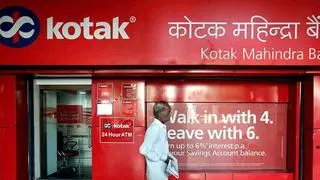Vistra ITCL (India) Ltd, one of the members of the CoC (committee of creditors) of Reliance Capital, has written to the National Company Law Appellate Tribunal (NCLAT) against NCLT’s order staying the second challenge mechanism under the resolution process.
The lender has said that the CoC is being prevented from discovering the best price for Reliance Capital and that NCLT has acted in excess of its jurisdiction as the signed plans were not even placed before the CoC for consideration.
“NCLT usurped the jurisdiction of the CoC by holding that the CoC has to vote on the ₹8,640 crore plan of Torrent and ₹8,110 crore plan of IIHL and that CoC has no jurisdiction to negotiate even on the figures,” it said, as per the letter accessed by businessline.
Vistra ITCL (India) is a debenture trustee which represents 90.12 per cent of the CoC and is thus acting on their behalf, it said, adding that the NCLT has substituted its opinion for that of CoC, which is not permissible under the IBC.
The Mumbai bench of NCLT, had on February 2, ruled against a fresh round of auction saying that the challenge mechanism for financial bids has already concluded. However, it did not issue any orders pertaining to further negotiations with the bidders.
Vistra has said that declaring Torrent Investments, the company which submitted the highest bid in the first challenge mechanism, would result in a loss of ₹5,000 crore to lenders, which includes public money. Reliance Capital has admitted claims of ₹25,000 crore, of which ₹13,500 crore belong to LIC, EPFO, provident and pension funds, and Army Group Insurance Fund.
It also accused Torrent of misused NCLT’s January 3 order to rewrite its own resolution plan and revising the upfront payment to ₹8,640 crore from ₹3,750 crore, to score higher than the other bidder--Hinduja Group--in an evaluation matrix .
The continued stay on the second challenge mechanism has resulted in an interest loss of over ₹275 crore in the last six weeks, and will further cause a loss of ₹45 crore per week, it added.
The CoC had unanimously voted for an extended challenge mechanism, as the outcome of the first one was considered sub-optimal and unsatisfactory.








Comments
Comments have to be in English, and in full sentences. They cannot be abusive or personal. Please abide by our community guidelines for posting your comments.
We have migrated to a new commenting platform. If you are already a registered user of TheHindu Businessline and logged in, you may continue to engage with our articles. If you do not have an account please register and login to post comments. Users can access their older comments by logging into their accounts on Vuukle.